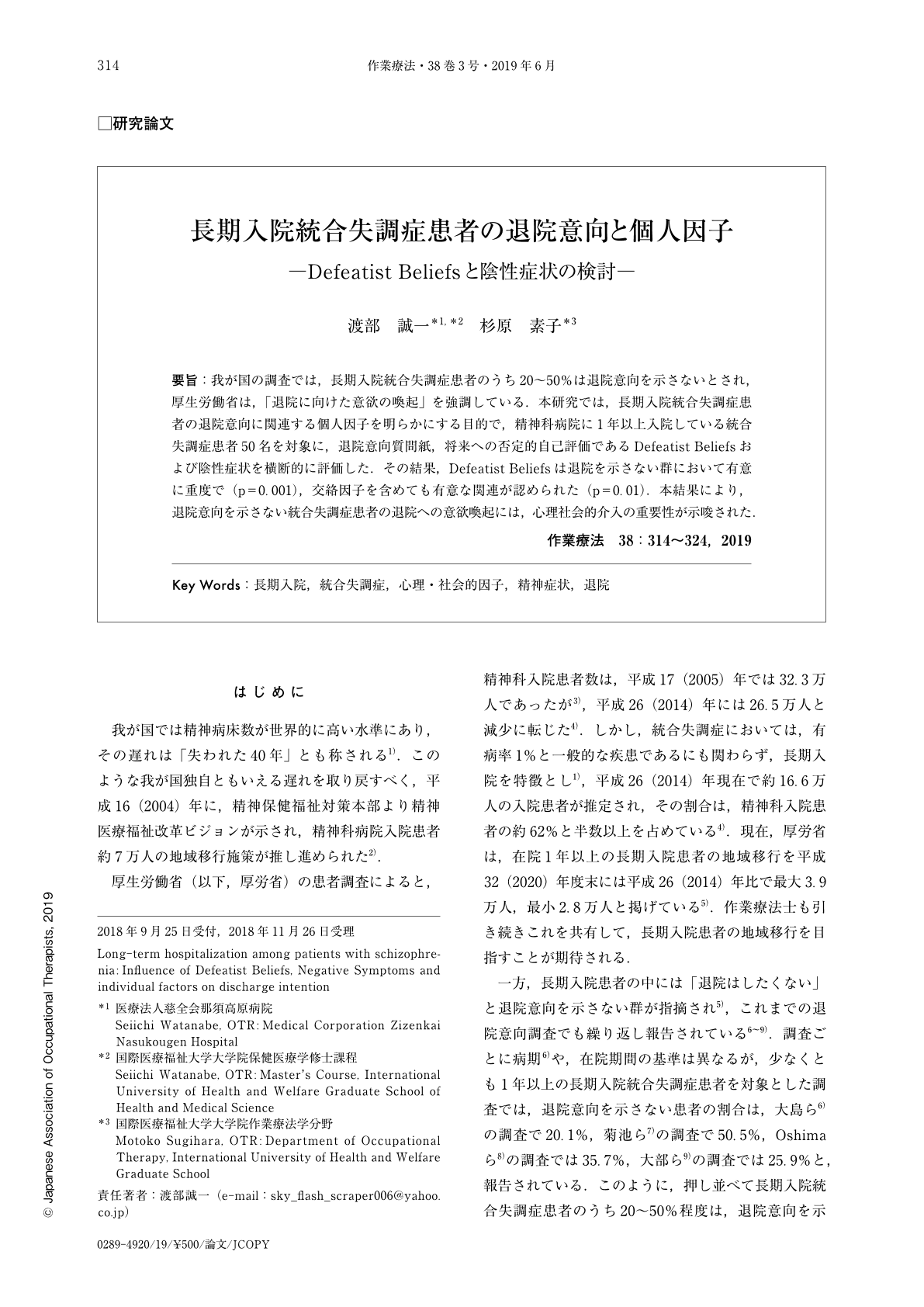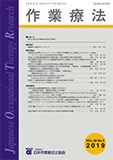Japanese
English
- 販売していません
- Abstract 文献概要
- 1ページ目 Look Inside
- 参考文献 Reference
- サイト内被引用 Cited by
要旨:我が国の調査では,長期入院統合失調症患者のうち20〜50%は退院意向を示さないとされ,厚生労働省は,「退院に向けた意欲の喚起」を強調している.本研究では,長期入院統合失調症患者の退院意向に関連する個人因子を明らかにする目的で,精神科病院に1年以上入院している統合失調症患者50名を対象に,退院意向質問紙,将来への否定的自己評価であるDefeatist Beliefsおよび陰性症状を横断的に評価した.その結果,Defeatist Beliefsは退院を示さない群において有意に重度で(p=0.001),交絡因子を含めても有意な関連が認められた(p=0.01).本結果により,退院意向を示さない統合失調症患者の退院への意欲喚起には,心理社会的介入の重要性が示唆された.
Research indicates that in Japan, 20 to 50 percent of long-term hospitalized patients with schizophrenia lack the will to be discharged. Thus, the Ministry of Health Labor and Welfare promote discharge by psychiatric hospitals. This study investigated individual factors that are related to the discharge intention of long-term hospitalized schizophrenic patients. The subjects were 50 schizophrenia patients who were hospitalized for more than 1 year. Outcome measures included the existence of discharge intention, Defeatist Beliefs and Negative Symptoms. Consequently, Defeatist Beliefs were significantly greater in patients with those who did not exhibit discharge intent (p=0.001), and a significant association was confirmed even when confounding factors were included (p=0.01). The results of this study suggest that psychological intervention is efficacious for promoting discharge among those patients with schizophrenia who do not have the will to leave the hospital.

Copyright © 2019, Japanese Association of Occupational Therapists. All rights reserved.


